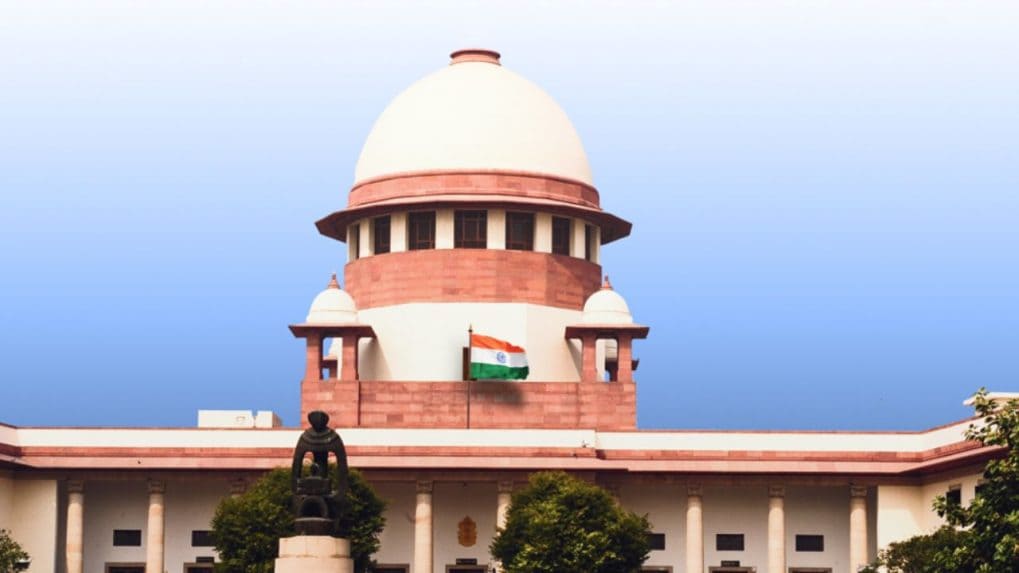Breaking: States cannot regulate games of skill, gaming firms argue in Supreme Court
Refuting the states’ argument that online gaming is fundamentally different from offline versions due to technological anonymity and scale
ADVERTISEMENT
In a significant development before the Supreme Court of India, Senior Advocate Dr. Abhishek Manu Singhvi, appearing on behalf of the online real money gaming companies, made detailed submissions in response to Special Leave Petitions (SLPs) filed by the States of Karnataka and Tamil Nadu challenging high court verdicts that struck down state-imposed bans on online rummy and other games of skill played for stakes.
The batch of SLPs stem from three separate high court decisions — two from the Madras High Court and one from the Karnataka High Court — which uniformly ruled that online skill games, including rummy and poker, fall outside the purview of “betting and gambling” as defined under Entry 34 of List II in the Constitution.
Dr. Singhvi argued that the Impugned Acts — namely the Tamil Nadu Gaming and Police (Laws) Amendment Act, 2021, the Karnataka Police (Amendment) Act, 2021, and the Tamil Nadu Prohibition of Online Gambling and Regulation of Online Games Act, 2022 — blur the legally and constitutionally significant distinction between games of skill and games of chance by defining “gaming” as any online game played for money or stakes. This definition, he stated, goes beyond legislative competence and violates the Constitution.
According to Dr. Singhvi, “Games of skill have been judicially distinguished from gambling and are protected under Article 19(1)(g) as legitimate business activities. The state can only legislate on games of chance — not on games predominantly based on skill.”
Relying on a trilogy of landmark decisions — RMD Chamarbaugwala (1957), K. R. Lakshmanan (1996), and Satyanarayana (1967) — Singhvi emphasized that the legal principle distinguishing skill from chance is well-settled. These rulings establish that betting on games that are predominantly skill-based does not constitute gambling and, therefore, cannot be banned under laws targeting betting and gambling.
He warned that the state's attempt to give a disjunctive interpretation to the phrase “betting and gambling” — thereby allowing regulation even of betting on games of skill — would dismantle decades of constitutional jurisprudence.
Refuting the states’ argument that online gaming is fundamentally different from offline versions due to technological anonymity and scale, Dr. Singhvi maintained that the gameplay, rules, and skill-based nature of rummy remain constant across platforms. “Just because a game is digitized does not convert it into gambling,” he stated, adding that such a distinction is artificial and unsupported by evidence.
He further drew attention to regulatory safeguards such as KYC norms, platform transparency, bot-free certification, and responsible gaming tools, asserting that the platform operates as a neutral intermediary charging a fixed commission and does not participate in the games themselves.
Dr. Singhvi argued that the Impugned Acts conflict with the Information Technology (Intermediary Guidelines and Digital Media Ethics Code) Rules, 2021, which provide a comprehensive regulatory framework for online gaming through self-regulatory bodies. He noted that these central rules came into effect before the State laws, rendering the latter inconsistent and ultra vires.
Moreover, Singhvi emphasized that the legislative competence to regulate online communication, which includes online gaming platforms, lies exclusively with Parliament under Entry 31 of List I (Union List) and not with States.
He also pointed to the constitutional amendment that shifted “betting and gambling” from State jurisdiction (Entry 62, List II) into the GST regime, reflecting a uniform approach. Therefore, games of skill — being outside this domain — should not be caught under laws framed for “betting and gambling.”
As the Supreme Court hears these petitions, the outcome will have far-reaching implications for India’s burgeoning online gaming industry — valued in billions — as well as for constitutional interpretation of legislative competence, digital rights, and business freedoms.
The verdict will decide whether states can impose prohibitions on online games of skill and whether such activities fall under state jurisdiction or require central oversight. Until then, the legal clarity provided by multiple high courts remains the industry’s anchor.
Read More: Supreme Court takes over PILs against opinion trading platforms
Read More: Gaming GST case: Supreme Court jests as lawyers debate stakes in games of skill


